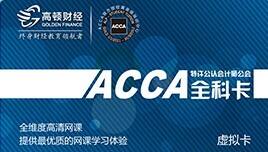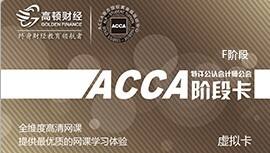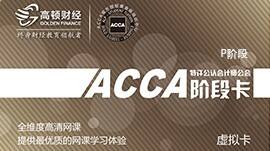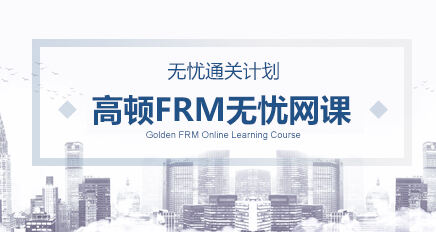2012年6月P2考前Tips
Exam Tips for June 2012 P2 Corporate Reporting
Consolidation in Question 1
- Sub-subsidiary or D-shaped consolidation & relevant goodwill impairment with
consolidated balance sheet or comprehensive income statement (IAS 27, IFRS 3 &
IFRS 10) including piece-meal accounting
- Exemptions from preparation of financial statements and reasons directors may wish
to exclude subsidiaries from consolidation (IFRS 10)
- Ethics linked to the accounting related adjustment and non-accounting related issue;
IFRS in Question 1, Question 2 & Question 3
- Event after reporting date (IAS 10)
- Deferred taxation (IAS 12)
- Leases (IAS 17)
- Employee benefits (IAS 19)
- The Effects of Changes in Foreign Exchange Rates (IAS 21)
- Joint Arrangements (IFRS 11) & Disclosure of interests in Other Entities (IFRS 12)
- Non-current assets and relevant impairments (IAS 16, IAS 38, IAS 40 & IAS 36) &
Non-current assets held for sale & discontinued operations (IFRS5)
- Share based payment (IFRS2)
- Financial instruments (IFRS 9)
Question 4
- Fair value measurement (IFRS 13)
- Management commentary & Conceptual framework (including IASB Framework)
- Measurement of Liabilities in IAS37 (including IAS 37 Provision, contingent
liabilities and contingent assets)
- Hedge Accounting (including IAS 39 Financial instruments)
- Others (Offsetting Financial Assets and Liabilities & Investment Entities)
FAQs for Exam June 2012 P2
I have also summarized Frequently Asked Questions (FAQs), which all comes from the
questions raised by my students. And you may review it before sitting the exam.
Q1: 合并报表时候,如果碰到是年中处置子公司的股份并失去控制权的时候如何处理?
A: 在年中处置的处理方法和我上课时给的计算公式是一致的,可以使用上课时的公式。分别在母公司的SFS和集团的CFS进行会计处理。处理这些问题的难点在于对于Retained earning的处理,对于处置股份的Parent而言,处置时形成的P&L要计入Parent的R/E因为这是记录在Parent的SFS,不需要在NCI 之间进行分配。但在合并报表中属于Parent对Subsidiary拥有的Retained earnings和NCI的计算要按照持股比例分段计算,其损益按12 各月平均分摊。举例如下:
Jun 2010 Q1
Bochem 在年中处置了Ceram50%的股权,从subsidiary (Ashanti) 成为了associate。
在变成associate之前,Ceram是subsidiary to Ashanti,其发生的损益应当纳入合并
的范围,按照时间分摊除12乘6(即一半),得到的结果应当按照在处置时的持股比例在parent(Ashanti)和NCI 进行分配。
但在成为associate 以后则要按照IAS39 Investment in Associate 进行会计处理,此时
对于Bochem来说其对于Ceram的投资在Bochem的账上是Investment in associate,所以按照associate的持股比例确认P&L 或OCI,但这些确认是在Bochem的SFS上进行的。
处理这些问题的关键在于知道会计处理是站在哪个角度而言的,Parent or Subsidiary?
如果是母公司的话则不需要分配retained earnings,子公司的话就需要分配retained
earnings,但如果在年中持股比例发生变化,则对子公司的post acquisition profit 需要按照在变化前和变化后的持股比率计算分段计算母公司拥有的对子公司的retained earning 和NCI(对于一个年度的损益按12个月平均分摊)。
Q2: Dec 2009 Q1, reporting date 时有2个子公司PARK & FENCE,他们都是在reporting date时有股份的变化,做合并时为什么subsidiary retained earnings 和NCI都是按照没有变化之前的控股比率来分配?(结合Q2)
A: 因为parent在年末处置了子公司,所以在处置之前的持股比率一直是老的比率,post-acquisition retained earnings 指的是从acquisition 一直到reporting date的子公司
retained earnings,所以应该用老的比率在subsidiary retained earnings 和NCI 之间进
行分配,但在年中处置的时候,则要按照新老持股比率分别计算(这种方法比较复杂,所以考官考的较少)。
Q3: 根据IFRS5,NCA HFS should be measured at lower of carrying value and fair
value less cost to sale, 但Notes 书上那一章的例题中最后为什么不以这两个的低carrying value入账,为什么还要冲回?
A: Note P23 第5 行 Non-current assets or disposal groups that are classified as held
for sale are measured at the lower of carrying amount and fair value less costs to sell.应该指的是NCA HFS 转换后的初始计量,但后续计量要根据P23倒数第5行的subsequent measurement 进行处理,可以冲回。但冲回的金额应该以之前做过的减值(e.g IAS16 PPE)和变成NCA HFS 的公允价值下降为上限,不可超过这两个数的合计。
Q4: Other comprehensive income在报表的那个位置?
A: 准则修改后的报表叫做Comprehensive Income Statement,它包括两个部分第一部分叫Income Statement,记入P&L 的项目。第二部分叫做Other Comprehensive Income Statement,记入equity (OCI)的项目(也就是以前的recognized income & expense)。
Q5: Jun 2010 Q1 B出售C的50%的时候,goodwill为什么要用6.2m?可以用C在B那里的goodwill 47m 来算吗?
A: 使用goodwill 47m 的计算方法是相对正确(其实正确的做法是计算B对于C的goodwill,但考官没有给出B对乙C的fair value of NCI),考官也在suggested answer 中写道过这种方法P13 第9 行。但这种使用这种方法计算出来的结果和suggested answer 会差很多,考官也提到了这一点,但他最终还是使用的goodwill 6.2m 的这种方法作为suggested answer,所以在考试中你可以使用goodwill 47m 的来计算没有问题。
Q6: 2008年6月的考题 3(d),为什么不考虑折现呢,因为既有market rate 8%,又有effective interest rate?
A: 这里需要考虑折现的问题,但不需要计算。这题考查的是IAS39 的企业的借款,属于financial liability,而financial liability 有两种计量模式,一种是fair value through
profit or loss (和financial asset 的TPL 相对应),另一种是amortized cost。而这里的借款一般没有active market(和financial asset 的HFM 和AR/Loan 相对应),所以应该使用amortized cost。对于amortized cost,其基本原理是计算effective interest rate (i.e
EIR),通用公式如下:
PV=A * (P/A, i, n)
PV, A, n 都是已知参数。
在本例中如果PV=2m, A 为利息、本金和罚款,n 为7 年的话,EIR=9.1%。但如果
PV=2m,A 为利息和本金,n=10 年的话,EIR=8%。
这道题目考查的是到底要选上面两种情况中的那一种,根据scenario,应该选择第一种。所以其实题目已经帮你折现好了,因为折现的目的是使用内插法(trial & error method)去计算EIR,但现在考官已经告知EIR ,所以你不需要折现了。然后,你可以用9.1%去计算每年的利息,支付利息、本金和罚款。
Q7: 请解释IAS17 sale & leaseback中对于售后形成operating lease, if the sale price
is below FV-P&L should be recognized immediately , except if a loss is compensated
for by future rentals at below market price, the loss it should be amortized over the
period of use?
A: 会计分录如下:
Dr. Cash 13m
Dr. P&L 2m
Cr. Assets 10m
Cr. P&L 5m
可以看到,虽然是below fair value,但企业还是有3K(i.e. 5-2)的收益,这时因为账面价值10m 还是低于售价13m。贷方的15k 是资产的公允价值,借方的2K 是售价低于公允价值的损失。
Q8: Jun 2009 Q1题目的Notes2,说INA at 2008.6.1 was 170m (excluding deferred tax
assets and liability)这里特别指出是exclude是何意? 如果题目变成include的话,答
案会发生什么变化呢?
A: 这里用exclude的话,就是要计算由于合并而形成的deferred tax assets或liabilities,
会对goodwill的计算产生影响。如果用include的话(出现的机会比较低),就是无需计算合并形成的deferred tax assets和liabilities,但在这种情况下一般不会特地的告之include的信息,计算goodwill时也就无需考虑。
Q9: 怎么计算D-Shaped下公司的商誉?(举例如下)
1. Rodney had acquired 80% of the ordinary share capital of Del on 1 December three
years ago, when the retained earnings of Del were $100m. The fair value of the noncontrolling interest was $154m at acquisition. The fair value of the net assets of Del was $710m at that date.
2. Rodney and Del had acquired their holdings in Trigger on the same date as part of an attempt to mask the true ownership of Trigger. Rodney acquired 40% and Del acquired
25% of the ordinary share capital of Trigger two years ago. The fair value of the
non-controlling interest in Trigger attributable to Rodney was $149m at acquisition. The retained earnings of Trigger on that date were $50m. There was no revaluation reserve in the books of Trigger at acquisition. The fair values of the net assets of Trigger at acquisition were not materially different from their carrying values.
Financial Statement at Reporting Date Effective Shareholding Parent & NCI allocation
Goodwill Rodney & Del
Fair value of Purchase consideration 640
Fair value of NCI 154
Fair value of identifiable net assets -710
Goodwill at acquistion date 84
Goodwill Rodney & Trigger
Fair value of Purchase consideration (Investment of Trigger by Rodney) 160
Investment of Trigger by Del 100
Indirect holding in Trigger belonging to NCI (100*20%) -20
Fair value of NCI 149
Fair value of identifiable net assets (250+50+50+0) -300
Goodwill at acquistion date 89

相关阅读
2012年12月ACCA考试P4考试考官报告2013/06/19
2012年12月ACCA考试P3考试考官报告2013/06/19
2012年12月ACCA考试P2考试考官报告2013/06/19

















